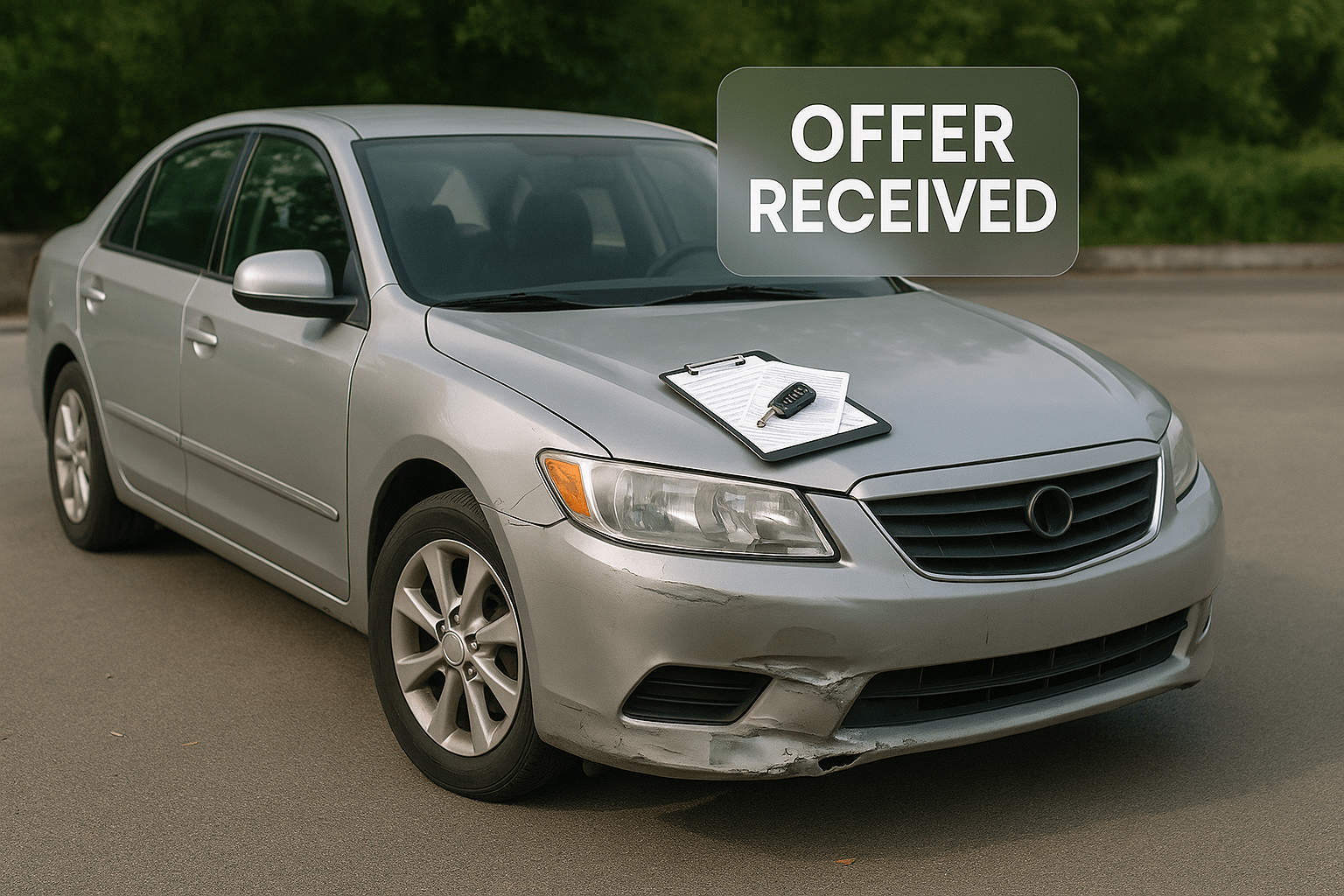
Selling Your Car After an Accident: Tips to Maximize Value
Had a crash? Learn how to sell your damaged car smartly. From minor fender benders to major repairs, discover tips to get the best price and avoid lowball offers. Transparency and timing are key.
Selling Your Car After an Accident: Tips to Maximize Value
Damaged Doesn’t Mean Worthless
Selling a car after it’s been in an accident can feel overwhelming, especially if you're unsure of its current value or who might be willing to buy it. While damage can impact resale potential, it doesn’t necessarily mean your vehicle is worthless. With the right approach, you can still secure a fair offer and make a smart sale. The key lies in understanding your options, preparing the vehicle properly, and being transparent with buyers.
Start With a Damage Assessment
Begin the process by getting a professional damage evaluation. Whether it's cosmetic dings or structural issues, a mechanic or insurance adjuster can help identify what repairs are necessary and which ones you can skip. This step helps determine the car’s actual value and whether any repairs are worth completing before you list it.
Gather and Present Documentation
Accurate, detailed documentation builds buyer confidence. Collect accident reports, repair invoices, insurance claim summaries, and any service history. These records show you have nothing to hide and can make it easier for a buyer to assess the car’s condition objectively making transparency your best tool for negotiation.
Should You Repair Before Selling?
One of the most common questions sellers ask is whether they should fix their damaged vehicle before listing it. The answer depends on the type and extent of the damage. Minor cosmetic issues like scratches, dents, or a cracked headlight can be inexpensive to fix and might significantly increase your asking price. However, major structural or mechanical repairs often cost more than they add in value. Always compare repair estimates to the vehicle’s post-repair market value, and when in doubt, get a few expert opinions before investing in fixes.
Choose the Right Buyer
Not every buyer is put off by a damaged car. Private buyers may hesitate, but professional car buying services, salvage yards, and “cash for cars” businesses specialize in these situations. They often offer competitive pricing based on what they can repair, reuse, or resell. Getting multiple quotes can help you avoid lowball offers.
Market It Honestly and Strategically
Be upfront in your listings about the vehicle’s history. Include clear, well lit photos of the damage and the good features of the car. Use concise descriptions and highlight any repairs already made. Listing on platforms that cater to “as is” vehicle sales can also help attract the right type of buyer.
Timing Is Still Everything
Just like with undamaged vehicles, market demand plays a big role in what you can get for your car. If inventory is low or certain models are trending, even a damaged version might fetch a higher price. Unless you're in a rush, wait for the right market window to list your car and be prepared to negotiate.
Conclusion: Don’t Undersell Yourself
An accident doesn't have to mean the end of your car’s value. By approaching the sale with honesty, preparation, and a smart strategy, you can still receive a fair and sometimes surprising offer. Know your car’s worth, document its story, and connect with the right buyer to get the best possible outcome.
Sell Your Car Today
Get your free valuation now

© 2023 - YourCarSold.com.au - MD28541